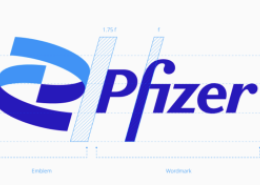Data Show Progression-Free Survival Advantage With Sutent® In Patients With Pancreatic Neuroendocrine Tumors
Sutent Filed for New Indication in U.S., Europe and Canada for Patient Population with Limited Treatment Options
(BUSINESS WIRE)--Pfizer Inc. today announced final results from a randomized Phase 3 trial of Sutent (sunitinib malate) in patients with advanced pancreatic neuroendocrine tumors, a type of cancer which originates in the hormone-producing area of the pancreas. Sunitinib more than doubled the time patients with pancreatic neuroendocrine tumors lived without disease progression compared with patients treated with placebo, according to study findings that will be presented tomorrow at the American Society of Clinical Oncology Gastrointestinal Cancers Symposium in Orlando, Florida.
An independent Data Monitoring Committee (DMC) recommended halting the trial in February 2009 because sunitinib showed significant benefit and the primary endpoint was met.
"This trial advances our understanding of the use of novel targeted therapies in a patient population with limited treatment options," said Dr. Mace Rothenberg, senior vice president of clinical development and medical affairs for Pfizer’s Oncology Business Unit. "We are pleased to be working toward filling an unmet patient need, as we did with Sutent four years ago in patients with kidney cancer and gastrointestinal stromal tumors."
The Phase 3 study findings served as the basis for the recent filings of supplemental applications for sunitinib in the treatment of pancreatic neuroendocrine tumors with the regulatory authorities in the US, Europe and Canada.
Phase 3 Trial Results
This international, Phase 3 trial compared sunitinib with placebo in patients with progressive, well-differentiated, malignant pancreatic neuroendocrine tumors. Patients were randomized to either the sunitinib (n=86) (37.5 mg/day, continuous daily dosing) plus best supportive care arm or the placebo plus best supportive care arm (n=85).
Results showed that median progression-free survival (PFS) was 11.4 months in patients treated with sunitinib compared with 5.5 months in patients treated in the placebo arm (Hazard ratio 0.418, p<0.001). Sutent also prolonged overall survival, a secondary endpoint of the trial (Hazard ratio 0.409, p=0.0204).
“The magnitude of Sutent’s benefit in the pancreatic neuroendocrine tumor patient population was an encouraging finding,” said Dr. Eric Raymond, professor of medical oncology and head of University Department of Medical Oncology (Service Inter Hospitalier de Cancerologie) Bichat-Beaujon, Clichy, France, and lead investigator on this sunitinib Phase 3 study. “These findings offer hope to a patient population for whom there are limited treatment options.”
Adverse events were similar to those observed in other sunitinib studies. The most commonly reported grade 3-4 adverse events in the sunitinib arm were neutropenia (12 percent), hypertension (9.6 percent), hand-foot syndrome (6 percent), leukopenia (6 percent) abdominal pain (4.8 percent), diarrhea (4.8 percent), asthenia (4.8 percent), fatigue (4.8 percent) and hypoglycemia (4.8 percent). Grade 5 cardiac failure was experienced by 1.2 percent of the patients in the sunitinib arm.
About Pancreatic Neuroendocrine Tumors
Tumors of the neuroendocrine system are typically classified into two distinct categories: carcinoids or pancreatic neuroendocrine tumors. Pancreatic neuroendocrine tumors form in the endocrine (hormone-producing) tissues of the pancreas and are separate from exocrine tumors, which account for about 95 percent of all pancreatic cancers.
Pancreatic neuroendocrine tumors are fairly rare, and reported in two to four people per million annually worldwide. Subtypes include insulinomas, glucagonomas and gastrinomas. Current treatment options are limited.
About Sutent(®) (sunitinib malate)
Sutent is an oral multi-kinase inhibitor approved for the treatment of advanced / metastatic renal cell carcinoma (RCC) and the treatment of gastrointestinal stromal tumor (GIST) after disease progression on or intolerance to imatinib mesylate. To date, approximately 82,000 patients globally have been treated with sunitinib in the clinical setting and trials.
Sutent works by blocking multiple molecular targets implicated in the growth, proliferation and spread of cancer. Two important Sutent targets, vascular endothelial growth factor receptor (VEGFR) and platelet-derived growth factor receptor (PDGFR), are expressed by many types of solid tumors and are thought to play a crucial role in angiogenesis, the process by which tumors acquire blood vessels, oxygen and nutrients needed for growth. Sutent also inhibits other targets important to tumor growth, including KIT, FLT3 and RET.
Important Sutent(®) (sunitinib malate) Safety Information
Women of childbearing age who are (or become) pregnant during therapy should be informed of the potential for fetal harm while on Sutent.
Decreases in left ventricular ejection fraction (LVEF) to below the lower limit of normal (LLN) have been observed. Patients with concomitant cardiac conditions should be carefully monitored for clinical signs and symptoms of congestive heart failure.
Patients should be monitored for hypertension and treated as needed with standard antihypertensive therapy. Complete blood counts (CBCs) with platelet count and serum chemistries should be performed at the beginning of each treatment cycle for patients receiving treatment with Sutent.
The most common adverse reactions in GIST and RCC clinical trials were fatigue, asthenia, diarrhea, nausea, mucositis/stomatitis, vomiting, dyspepsia, abdominal pain, constipation, hypertension, rash, hand-foot syndrome, skin discoloration, altered taste, anorexia and bleeding.
For more information on Sutent and Pfizer Oncology, including full prescribing information for Sutent (sunitinib malate), please visit www.pfizer.com.
About Pfizer Oncology
Pfizer Oncology is committed to the discovery, investigation and development of innovative treatment options to improve the outlook for cancer patients worldwide. Our strong pipeline, one of the most robust in the industry, is studied with precise focus on identifying and translating the best scientific breakthroughs into clinical application for patients across a wide range of cancers, including breast, lung, prostate, sarcoma, melanoma, and various hematologic cancers. Pfizer Oncology has more than 25 biologics and small molecules in clinical development and more than 200 clinical trials underway.
By working collaboratively with academic institutions, individual researchers, cooperative research groups, governments, and licensing partners, Pfizer Oncology strives to cure or control cancer with breakthrough medicines, to deliver the right drug for the right patient at the right time.
For more information please visit www.Pfizer.com.
DISCLOSURE NOTICE: The information contained in this release is as of January 22, 2010. Pfizer assumes no obligation to update forward-looking statements contained in this release as the result of new information or future events or developments.
This release contains forward-looking information about a potential additional indication for Sutent, including its potential benefits, that involves substantial risks and uncertainties. Such risks and uncertainties include, among other things, the uncertainties inherent in research and development; decisions by regulatory authorities regarding whether and when to approve supplemental drug applications that have been or may be filed for such additional indication as well as their decisions regarding labeling and other matters that could affect the availability or commercial potential of such additional indication; and competitive developments.
A further list and description of risks and uncertainties can be found in Pfizer’s Annual Report on Form 10-K for the fiscal year ended December 31, 2008 and in its reports on Form 10-Q and Form 8-K.
Pfizer Inc.
Media:
Chris Loder
212-733-7897 (office)
347-453-8199 (cell)
or
Investor:
Suzanne Harnett
212-733-8009








